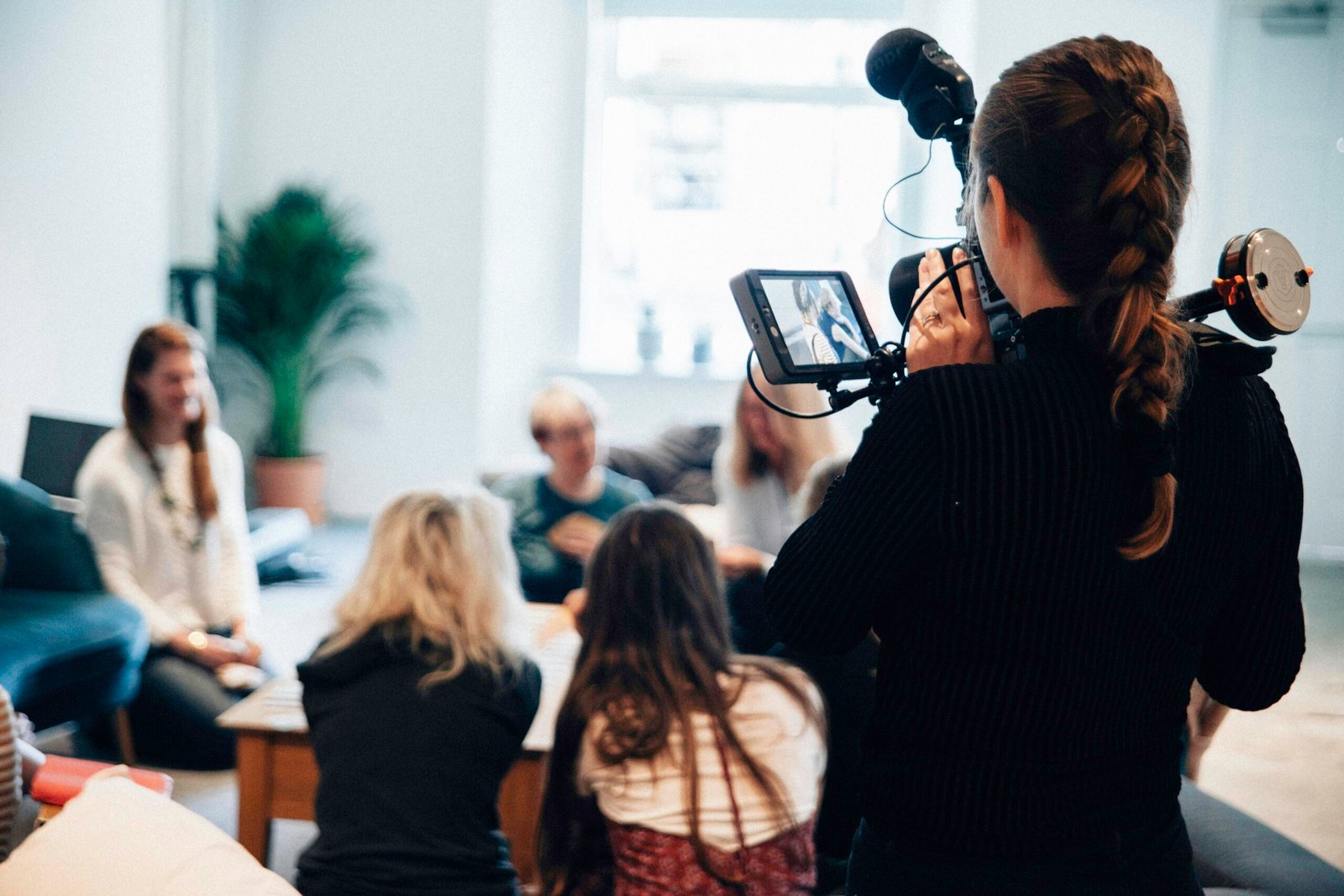In a recent job interview, a reader was caught off guard when the interviewer asked about their best friend and what their worst habit might be. This unusual line of questioning made the reader uncomfortable, as they prefer to keep their personal life separate from their professional one. The article explains that these types of questions are not typical in interviews and are actually considered to be poor interviewing techniques. It offers strategies for handling unexpected questions and emphasizes the importance of recognizing the power dynamics in interviews. Overall, it serves as a reminder that candidates have the right to evaluate potential employers just as much as employers evaluate them.

Typical interview questions vs. odd questions
Difference between typical and odd interview questions
In a typical job interview, you can expect questions that revolve around your qualifications, experience, skills, and how you would handle different work situations. These questions are designed to assess your fit for the role and your ability to perform the job effectively. They may include inquiries about your previous work experience, your strengths and weaknesses, how you handle conflict, and how you work in a team.
On the other hand, odd interview questions are unexpected and often unrelated to the job or your qualifications. They can catch you off guard and make you feel uncomfortable. These questions may delve into personal aspects of your life that are not relevant to the job, or they may be unconventional in nature. Odd interview questions are not common and are often the result of an interviewer who lacks proper interviewing skills.
Why the question of best friend is odd
The question about your best friend is an example of an odd interview question. It is unusual for an interviewer to ask about your personal relationships in a professional setting. While the intention behind this question may have been to gauge your self-awareness or ability to handle personal questions, it is not a relevant or appropriate question for a job interview.
As a job candidate, you may find it uncomfortable to discuss your personal life with a potential employer. Additionally, questions about your best friend do not provide any meaningful insights into your qualifications or ability to perform the job. It is important to remember that the focus of a job interview should be on your professional skills and experience, not your personal relationships.
Handling non-work-related questions
Strategies for answering non-work-related questions
When faced with non-work-related questions during a job interview, it is important to handle them tactfully. Here are some strategies you can use:
-
Relevance: If the question is not relevant to the job or your qualifications, you can politely steer the conversation back to your professional experience or skills. Emphasize your abilities and how they align with the requirements of the role. For example, you could say, “While I appreciate the question, I believe it would be more beneficial for us to discuss my experience in project management, which directly relates to the position.”
-
Redirect: If you’re uncomfortable answering a personal question, you can redirect the conversation to a more job-related topic. For instance, you can say, “I understand the importance of discussing my qualifications and experience. Can I provide more information about my previous projects and how they demonstrate my ability to handle complex tasks?”
-
Light-hearted response: In some cases, giving a light-hearted response can help diffuse the situation while subtly indicating that the question is not suitable for the interview. For example, if asked about your best friend, you could say, “Well, my best friend is my cat, and I suppose she would say I excel at opening cans of tuna!”
-
Ask for clarification: If you’re unsure about the relevance or intention behind a question, you can politely ask the interviewer for clarification. This approach allows you to better understand the purpose behind the question and respond accordingly. For example, you could say, “I’m intrigued by that question. Could you please explain how it relates to the role or the company?”
Addressing problematic legal territory
In some instances, non-work-related questions can cross legal boundaries and touch on protected characteristics, such as race, gender, religion, or marital status. It is important to be aware of your rights as a job candidate and respond appropriately in these situations.
If an interviewer asks a question that seems to be discriminatory or probes into personal information that is irrelevant to the job, you have the right to address the issue. You can do this by calmly stating, “I wasn’t expecting that question. Why do you ask?” This response allows the interviewer to recognize any potential legal concerns and provides an opportunity for them to re-evaluate their line of questioning.
It is essential to remember that interviewers should not ask questions that infringe upon your rights or discriminate against you based on protected characteristics. If you encounter such questions, you may want to consider whether this organization aligns with your values and if it is a place where you would feel comfortable working.

Preparing for questions about personal life
Expectation of questions about personal life
While non-work-related questions should not be frequent or common in job interviews, it is possible that interviewers may ask about your personal life to gain insight into your character and how you might fit into the company culture. Questions about personal life can touch on topics such as hobbies, interests, or favorite books.
It is important to recognize that these questions should still be approached with professionalism and discretion. Although the focus of the interview is your professional qualifications, interviewers may use personal questions as ice breakers or to gauge your compatibility with the team.
Preparing topics to discuss about personal life
To prepare for questions about your personal life, it can be helpful to brainstorm a few topics that you are comfortable discussing and that can be adapted to different questions. These topics should reflect your personal interests, values, or experiences that have shaped you professionally. This way, you have prepared responses that are both genuine and relevant to the job.
For example, if you enjoy volunteering, you can discuss your involvement with a particular organization and how it has taught you valuable skills that can be applied to the job. If you have a passion for reading, you can mention books or authors that have influenced your thinking or provided insights into your field of work.
By preparing topics to discuss about your personal life, you can confidently navigate personal questions while emphasizing aspects of yourself that are relevant to the job and demonstrate your character and capabilities.
Understanding power dynamics in interviews
Recognizing power dynamics
It is crucial to recognize the power dynamics at play during job interviews. Many candidates tend to view interviews as a one-sided assessment, where they are being evaluated by the interviewer. However, it is important to remember that interviews are also an opportunity for you, as the candidate, to assess the company, the role, and the organizational culture.
By recognizing the power dynamics, you can approach the interview with a sense of agency and confidence, rather than feeling solely at the mercy of the interviewer’s judgment. This mindset shift allows you to maintain your professionalism and assert yourself during the interview process.
Realizing the two-way nature of the interview
Job interviews are not only about impressing the interviewer; they are also an opportunity for you to gather information about the company and the role. As a candidate, you have the right to assess whether the job aligns with your goals, values, and career aspirations.
During the interview, pay attention to how the interviewer communicates, the organization’s culture, and any red flags that may indicate potential issues. This information will help you make an informed decision if you receive a job offer.
Remember, the interview should be a dialogue, with both parties asking and answering questions. By actively engaging in the conversation and gathering information, you can gain insights into the company’s expectations and assess if it is the right fit for you.
Gaining control over the interview process
While you may not have control over the questions asked by the interviewer, you can still control how you respond and navigate the interview. Here are some ways to maintain control over the interview process:
-
Prepare thoroughly: By researching the company, understanding the role, and practicing common interview questions, you can build your confidence and be better prepared to tackle unexpected or odd questions.
-
Highlight your qualifications: Take every opportunity to showcase your skills, experience, and achievements. Emphasize how your qualifications align with the job requirements and demonstrate your value as a candidate.
-
Ask your own questions: Prepare a list of thoughtful questions to ask the interviewer. This not only shows your interest in the position but also allows you to gather important information that will help you assess the company.
-
Maintain professionalism: Regardless of the questions asked, it is essential to maintain a professional demeanor throughout the interview. Respond calmly, think before you speak, and avoid becoming defensive or confrontational.
By taking these steps, you can regain a sense of control during the interview process and ensure that you are an active participant rather than a passive observer.

Conclusion
Handling odd interview questions can be challenging, especially when they touch on personal aspects of your life that are unrelated to the job. Although these questions are not typical, it is important to be prepared and have strategies in place for addressing them.
Remember to respond with professionalism, redirect the conversation to relevant topics if necessary, and assert yourself if faced with potentially discriminatory or inappropriate questions. Additionally, recognize the power dynamics at play during interviews and approach them as a two-way conversation, where you have the opportunity to assess the company and the role.
By navigating these situations confidently and maintaining control over the interview process, you can showcase your qualifications, demonstrate your willingness to adapt to different situations, and make informed decisions about potential job offers.














